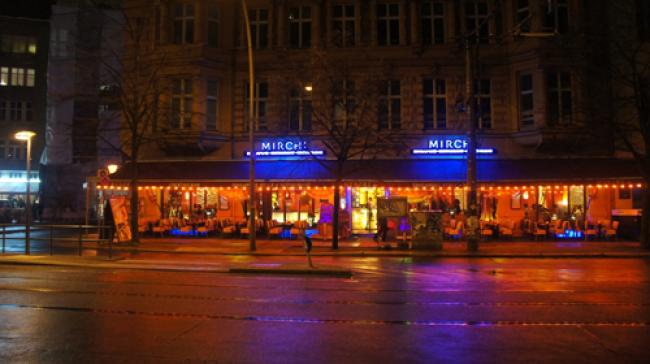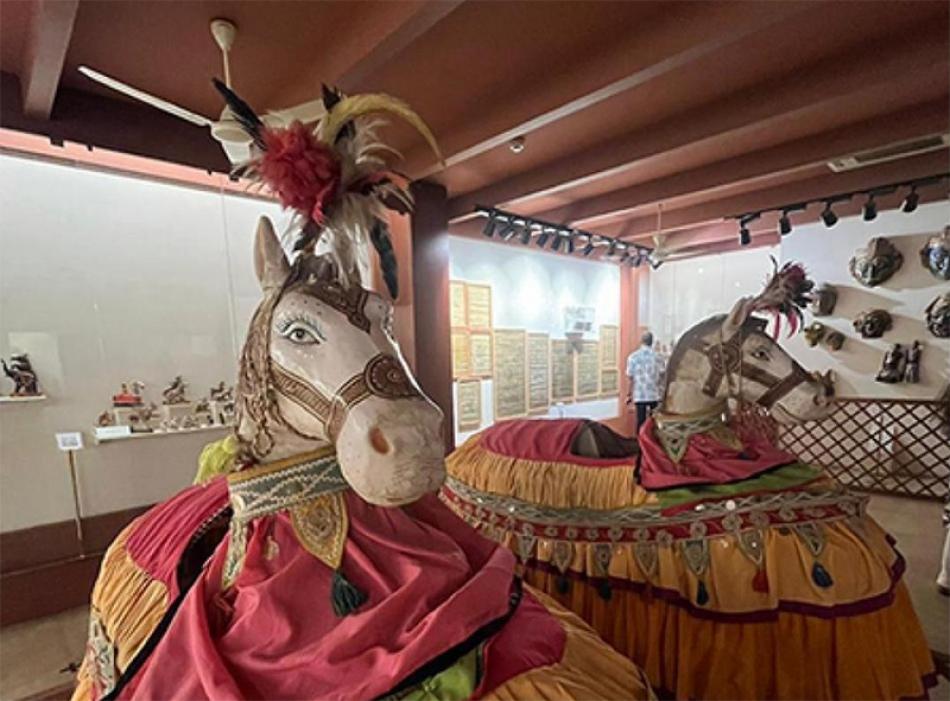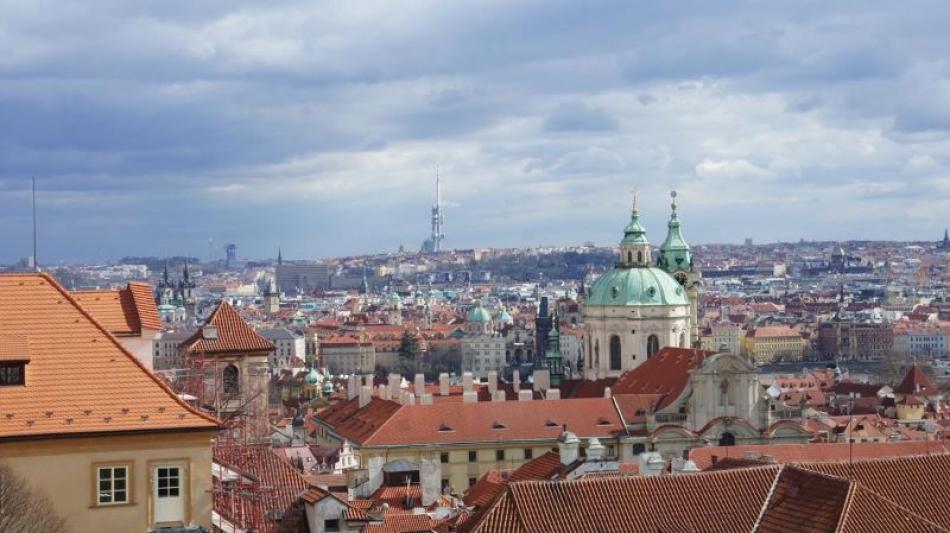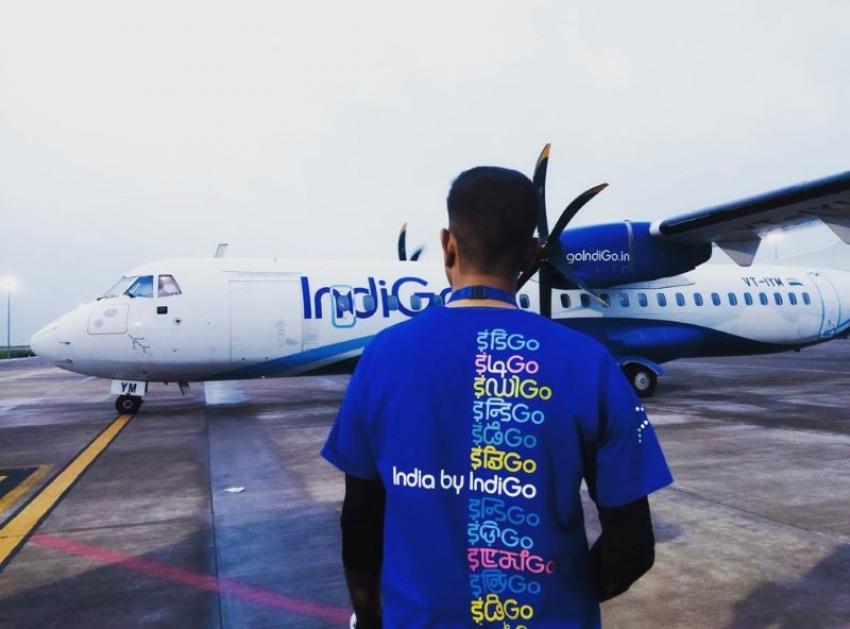Here's a piece of friendly advice: catch up on your sleep before you come to Berlin. The German capital does indeed live up to its reputation for unbridled nightlife. And with no official closing time for clubs and bars, you're never far from a good time, not even on Sundays. No matter which sound gets you off the couch — techno or tango, hip hop or house, rock or reggae — you'll find the right party spot in Berlin. There's even a website site (www.clubguideberlin.de) to help you identify which club best suits you. But first up, here's a quick overview:
Berlin: the bastion of electronic sounds
Electronic music - techno in particular - has ruled Berlin's after-dark action since the 1990s. This is the city that launched the careers of some of the world's top DJs, including Paul van Dyk, André Galuzzi, Ricardo Villalobos, Ellen Allien and Paul Kalkbrenner. All have significantly influenced the international scene from Berlin and still head the lineups of key clubs today.
The Holy Grail among techno disciples is Berghain (www.berghain.de), a dark, multi-floor labyrinth ranked among the world's best clubs by Britain's DJ Mag and other renowned publications. Hedonism rules with abandon in this former power station, not only on the dance floors but also in hidden nooks and darkrooms. House dominates upstairs in the Panorama Bar, while on the big factory floor below hard-edged minimal techno whips the gay-leaning crowd into a frenzy. The door policy is among the toughest in town and lines tend to be long.
Berlin's techno mothership, though, is Tresor (www.tresorberlin.com), founded in 1991 in the eponymous vault of an abandoned department store. The original had to close in 2005, but only two years later Tresor 2.0 was rebooted in a humungous ex-power station, just like Berghain. There are three floors in all, including the musty cellar where you can dance among the safe deposit boxes from the first location.
Also proving impossible to kill is the legendary Bar 25, which finally closed in 2010 but was reincarnated a year later as Kater Holzig (www.katerholzig.de). The dilapidated grounds of a one-time riverside soap factory are now a playground so surreal Dalí might have dreamed it up. Party marathons here often run from Thursday through Monday. Less excessive diversions include watching movies, listening to bands, relaxing by the bonfire or indulging in a fancy meal at the shabby-chic Katerschmaus restaurant.
The 'Techno Strip' in Friedrichshain
So many clubs have sprung up along Revaler Straße in Friedrichshain that it's sometimes dubbed 'Techno Strip', even though the sound spectrum is actually much more diverse. Venues here are gritty and laid-back and draw mostly the young, skinny-jeanster set that keeps attitude to a minimum.
One of the strip's hothouses where electronic music blossoms with fervor is Suicide Circus (www.suicide-berlin.com). Its killer sound system occasionally draws such turntable legends as Blake Baxter, Tanith or Mike Huckaby to hit the decks. In summer, the garden is a great place to give your feet and ears a break.
Suicide Circus is part of a jumble of buildings that used to belong to a train repair station, called RAW for short. It's essentially a playground for adults, beautified with colorful street art and home to artist studios, a skate hall, a climbing cone, a beer garden and several other party venues, including Cassiopeia (www.cassiopeia-berlin.de) which showers clubbers with an alchemy of sounds - metal to hip hop to techno. Also part of RAW is Astra Kulturhaus (www.astra-berlin.de), one of the city's best midsize concert halls with GDR-era lamps and patterned wallpaper. Big-name talent like Melissa Etheridge, Gotye and Nina Hagen have all rocked the spot, and Paul van Dyk's regularly hosts his Vandit Records label parties in the space.
Another cluster of popular party venues is a bit south of here, around Ostkreuz train station. Fans of flashy-trashy electro parties feel right at home in Salon zur Wilden Renate (www.renate.cc) in an abandoned residential building. On weekends, wild and creatively dressed party people invade the living-room-style maze to dance and drink until the wee hours.
At the nearby club collective ://about blank (http://aboutparty.net) it's another short journey into day. Dubstep and electro dominate the turntables, and record-release parties are as much part of the program as such regular parties as the lesbigay-leaning 'Homopatik' and the antinational 'Love Techno - Hate Germany'. In summer the garden is ideal for chilling on Sunday mornings.
The gate to nightlife: around Schlesisches Tor
On the west bank of the Spree, the area around U-Bahn Station Schlesisches Tor is another Berlin nightlife hub. Lorded over by the fairytale turrets of the Oberbaumbrücke (bridge), the Watergate (www.water-gate.de) is a tricked-out, bilevel electro temple where the lineup includes top international DJs pretty much every weekend. In summer, you can watch the sunrise from a wooden platform anchored in the Spree River.
Next door, Magnet Club (www.magnet-club.de) is an essential Berlin indie bastion that draws mostly student-age patrons with live concerts and rambunctious parties. Both tomorrow's headliners and established bands like The Posies and The Presets hit the stage here. After the last guitar riff, DJs make sure that the party continues into the morning.
In a converted 1950s movie theatre, around the corner in Schlesische Straße, Lido (www.lido-berlin.de) is another concert hall-club combo whose clientele skews young and alternative. Once a month, it's also the platform for the hot 'n' heavy Balkanbeats party.
In recent years, Schlesische Straße in general has turned into a major party strip. Aside from wacky bars like the lesbigay Barbie Deinhoff's and the last-call pub Myslivska, a major draw - especially in summer - is Club der Visionäre (www.clubdervisionaere.com). Kick back on the wooden planks of this former canalside boathouse while being showered by electro, or sweat it out on the tiny dance floor. There's even crispy pizza to pack empty tummies.
Nearby, the cauldrons and pipes of a machine hall form an electrifying backdrop for the Arena Club (www.arena-club.de), which is much loved and lauded for its top-notch sound system. The pounding beats are so powerful; it feels as though God himself is barking at you. A cadre of mostly homegrown top DJs demonstrates their skills for discerning clubbers.
Steps away, the Badeschiff (www.arena-berlin.de), a river barge turned swimming pool and lifestyle venue, anchors in the Spree, connected to the bank by wooden platforms perfect for lounging and tanning. In summer, the fun continues into the night with dancing, concerts, movies and other events. During the colder months, the entire complex gets covered up and turned into a sauna, heated pool and bar.
Kreuzberg nights around Kottbusser Tor
The Turkish-flavored neighborhood west of Schlesisches Tor has morphed into yet another key party zone. Case in point, the pint-sized Soju Bar (www.soju-bar.com). Named after the eponymous Korean liquor, it's decorated with neon signs from Seoul, pulses with electro beats and gets packed with bright young things night after night. It also boasts the city’s only toilet karaoke.
Right at Kottbusser Tor U-Bahn station, above the Kaiser's supermarket, Monarch (www.kottimonarch.de) delivers views of the elevated U-Bahn tracks and gritty Kreuzberg realities. Hipsters, regulars, tourists and students knock back beers and shots while listening to danceable tunes beyond the mainstream. Nearby, Festsaal Kreuzberg (www.festsaal-kreuzberg.de), in a former Turkish wedding hall, hosts concerts, parties, readings and other events.
Oranienstraße is home to SO36 (www.so36.de), the mother of all Berlin punk clubs where the Toten Hosen and The Dead Kennedys played some early gigs. Live concerts continue to be part of the shape-shifting program, which ranges from electro parties to a night-time flea market, a roller disco to Gayhane, a 'homo-oriental' party geared towards Turkish and Arab lesbigays. Check the schedule before setting out.
A short walk west quickly takes you to Ritterstrasse, where Ritter Butzke (www.ritter-butzke.de) holds court in an ex-bathroom fixture factory. Wrinkle-free hipsters groove to electronic music of all kinds on four floors enhanced with disco balls, light installations and chandeliers. Regular parties such as Delikat-Möbelruecken and Pyonen are also part of the program.
West of here, Gretchen (www.gretchen-club.de) is one of Berlin's newer dancing dens. Since October 2011, the cross-vaulted rooms of the stables of a one-time Prussian regiment vibrate with beats, basses and light installations. The crowd defines the word eclectic as does the musical spectrum which runs the gamut from electro to dubstep, indie to jazz.
Already considered an institution, Horst Krzbrg (www.horst-krzbrg.de) has set up shop nearby in a defunct postal station on the Landwehr canal. Depending on the night, techno, house, minimal, dubstep or drum 'n' bass rain down on attitude-free clubbers from a superb audio system. An extravagant laser light show does its part in fueling the exuberant vibe.
Northern Neukölln - Berlin's newest 'It'-Kiez
The northern part of Neukölln (also called Kreuzkölln because of its proximity to Kreuzberg) has gone from ghetto-gritty to funkytown-hip in just a few short years, with new pubs and bars sprouting up seemingly on a weekly basis. Most keep it real with flea market-style furnishings, improvised flair and cheap drinks, which suits the clientele of students, tourists, neo-Berliners and life artists just fine. More often than not, the sun's already over the horizon when the last tippler stumbles out the door.
Weserstraße is the main drag around here. Make the pilgrimage to pioneering Ä (www.ae-neukölln.de), which has scored high on the groove-meter since 2007. Delightfully divey, it's a great place simply for quaffing and chatting or catching a concert or reading. A special treat is the monthly 'Schmusetiersoap' (literally: cuddly animal soap opera), in which cast-off stuffed animals comment on current events. By pure coincidence, the bar with the big windows across the street is called Tier.
Heading north towards Hermannplatz soon takes you to Silverfuture (www.silverfuture.net), a lesbigay pub collective with cheap beers, campy clientele and crazy events. Next door, Fuchs und Elster (http://fuchsundelster.com) is a cafe-bar that on weekends quite literally becomes the gateway to an 'underground club' in the basement cellar. Pounding electro beats keep the youthful crowd partying till sunrise.
The owner of the teensy bar Kuschlowski (www.kuschlowski.de) knows a thing or two about interior design, which is why the wooden retro furniture, homemade lamps and a cozy fireplace is such as winning combination. When it comes to drinks, this former bordello is especially renowned for its many Russian vodka varieties.
By Kreuzkölln standards, Yuma Bar (www.yuma-bar.de) verges on the elegant. The two rooms here are bathed in cozy-red light, creating a relaxing ambience conducive to enjoying potent Belgian beers or well-mixed cocktails. Works by local artists grace the walls, and readings, DJ sets and even an origami workshop are also part of the program.
Vintage fixtures meet modern sound technology at Loftus Hall (www.loftushall.de), one of the few dance venues in Kreuzkölln. Since late 2011, DJs from handpicked electro labels hit the decks in this former football clubhouse. The name Loftus Hall, by the way, refers to a haunted house in Ireland.
Cosmopolitan partying in Mitte
Mitte clubs tend to be chicer and more expensive and cater primarily to a mix of creatives and desk jockeys. The latter, however, are rarely found at the legendary Cookies (www.cookies-berlin.de) since it only opens its doors on Tuesdays and Thursdays. House and electro are the dominant sounds in the swank 1960s movie theater. Cookies Cream restaurant upstairs serves gourmet vegetarian fare from Tuesdays to Saturdays.
Flamingo (www.flamingoberlin.com) only landed on Berlin's party scene in October 2011. Overlooking Monbijoupark, this small club is the place to hobnob with a globe-spanning crowd of hipsters, many from creative and fashion fields. The focus here is not only on the music (mostly electro and house) but also on the quality of the cocktails. Those old enough to remember the 80s might get flashbacks from all that neon and glitter decor.
The club with the finest panorama is Weekend (www.week-end-berlin.de). Enjoy breathtaking views of Alexanderplatz and the eastern city from the 12th floor and, in summer, the rooftop terrace. Top dogs of the international house and electro scene - such as Carl Cox and Tiefschwarz - often helm the decks here or on the windowless 15th floor.
Open since late 2010, sizzling Asphalt (www.asphalt-berlin.com) exerts its siren call not only to Berlin's cashed-up weekend warriors: Madonna too has partied till dawn in this basement club at the Hilton Hotel on Gendarmenmarkt. With its purist design and sound ceiling consisting of over 400 loud speakers, the exclusive club considers itself as the "future of progressive clubbing". Music-wise, anything goes - from jazz to hip hop to soul and electro.
Over at the Adlon Hotel, the extravagantly designed Felix Club (www.felix-clubrestaurant.de) is another fixture on the Berlin party circuit. See-and-be-seen scenesters, and even the occasional celebrity, are showered mostly with disco, house and black classics. Thursday's after-work parties always draw plenty of shiny happy people, while on Mondays 'ladies' are lured with free entrance and a glass of prosecco.
As an antidote to the chic Mitte clubs, K-TV (www.ktv-berlin.de) has set up shop in a ramshackle building, ominously located opposite the new German secret service HQ on Chausseestrasse. Since summer 2011, the trashy 90s get a minor revival here, both in the upstairs bar as in the catacomb-like cellar. Although a compact place, there are two dance floor that usually hum with an eclectic sound mix ranging from disco and hip hop to electro-rock and 80s hits.
Spotlight on Eastern Europe
Berlin is the gateway to Eastern Europe, which is also reflected in its nightlife, for instance in the world-famous Russian Disco at Kaffee Burger (www.kaffeeburger.de) in Mitte. The party is the brainchild of Yuriy Gurzhy and Vladimir Kaminer, whose book 'Russendisko' launched the latter's literary career back in 2000. Every two weeks, the GDR-era artist-haunt reverberates with Balalaika-rock, polka-punk and Klezmer-Ska. Put on your dancing shoes!
Balkan parties too have enjoyed a huge following for some time. This extremely danceable music is a mutation of traditional songs from the former Yugoslavia. Sounding like folk rock on steroids, this music bursts with passion and joy and inevitably fuels sweaty dance parties. One of the best is simply called Balkanbeats (www.balkanbeats.de) and is organized monthly at the Lido by DJ Robert Soko, one of the pioneers of Berlin's Balkan music scene. In Friedrichshain, Klub Balkanska hosts wild parties at the Lovelite.
Riding the retro wave
Several times a year, the party series Bohème Sauvage (www.bohemesauvage.de) pays tribute to the Golden Twenties in historic venues across town. Guests are elegantly dressed in suits, hats, feather boas and pearls and hoof it across the dance floor with lindy hop or Charleston. Burlesque shows, sipping absinth, playing roulette or watching not exactly PG-rated silent movies are all part of the fun.
In Mitte, the past comes alive at Clärchens Ballhaus (www.ballhaus.de). In a 19th-century ballroom, hipsters from 20 to 80 let their hair down to tango, salsa, swing and waltz. The tinsel-walled hall is especially packed on Fridays and Saturdays when a live band plays popular favorites. For sustenance there's pizza and German food.
The rock 'n' roll era also gets its due in Berlin. At Bassy (www.bassy-club.de) in Prenzlauer Berg only music from the period before 1969 hits the turntables - everything from swing to country, rock to soul, blues to surf. Guests sporting tattoos, petticoats and Stetsons are especially welcome. Concerts, burlesque shows and outrageous gay parties round off the eclectic program.
Not far from here, the Roadrunner's Club (www.roadrunners-paradise.de) is hidden on the grounds of a labyrinthine former brewery. Original rock 'n' roll culture of the 50s and 60s is honed and celebrated here. Shake your hips to live bands or DJs while surrounded by girls in petticoats and boys sporting Elvis-style pompadours.
Sexy & Sinful
Berlin's exuberant and liberal nightlife reaches its peak in the city's 'erotic nightclubs'. Self-professed hedonists don leather or latex (or at least a sexy little black dress) to flirt up a storm on the dance floor or live out their sexual fantasies quite publically in themed rooms. Scantily dressed go-go dancers and fetish shows further turn up the heat. The most famous clubs of this kind are KitKat (www.kitkatclub.org) in Mitte and the more elegant Insomnia (www.insomnia-berlin.de), not far from the former Tempelhof airport.






